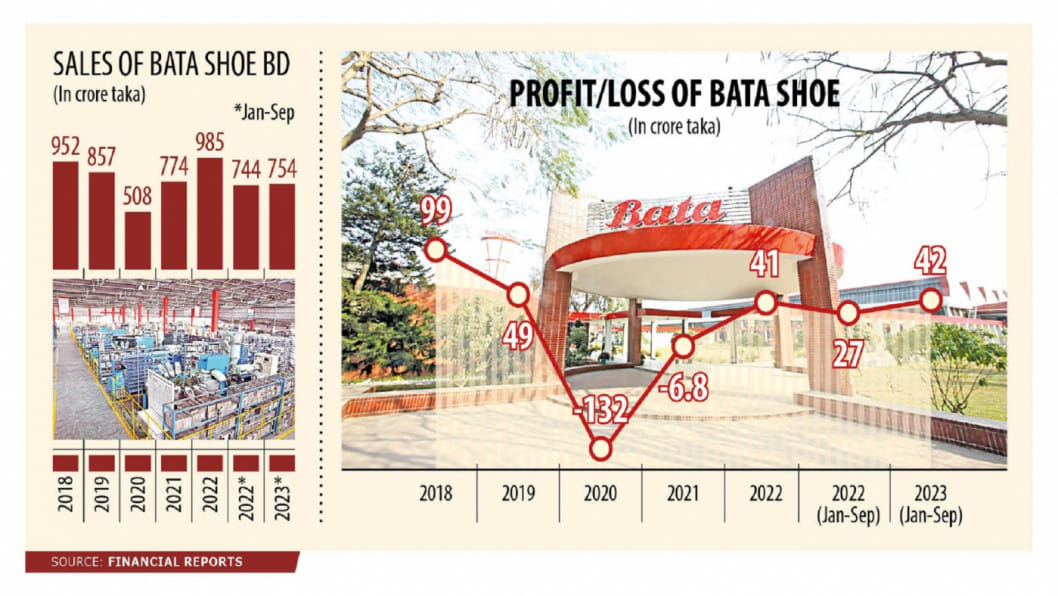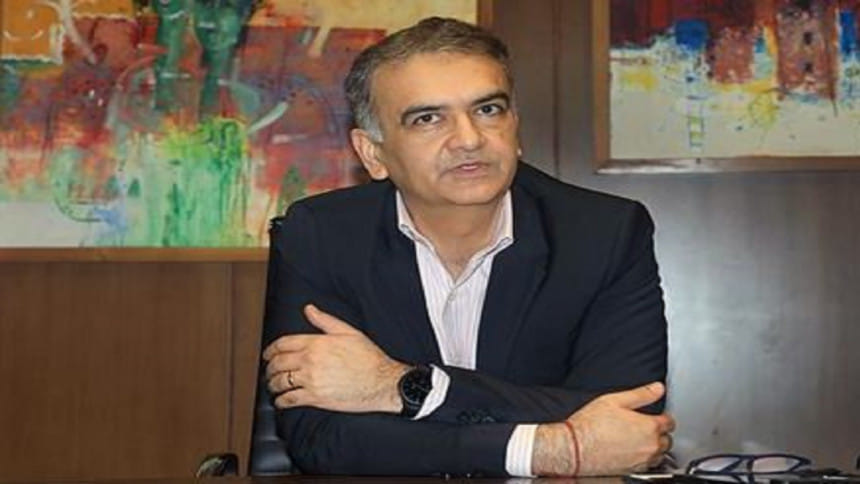Bangladesh: A rainmaker for Bata

Bangladesh is already one of the top 10 markets for Bata Shoe but its Chief Executive Officer Sandeep Kataria thinks the country offers further growth opportunities for the multinational company.
"So, it's a very important market for us."
Although the top official did not disclose Bangladesh's position among the top ten markets, he said it moved up in the ranking last year.
"This was partly because of what the company has done in Bangladesh, and partly because of the dollar impact on some of the countries," Kataria told The Daily Star in an interview in Dhaka last week during his visit to the country.
Bata Shoe started its operations in Bangladesh in 1962, nearly a decade before its independence.
"We have received a lot of love from the consumers of Bangladesh in the past 62 years. Still, we are seeing a lot of opportunities for growth in the country in the coming days."
Kataria said some of Bata Shoe's managers played a role during Bangladesh's struggle for Independence. "Therefore, our company has been very much part of Bangladesh's growth trajectory."
"We continue to look at this as a strategic market for us, not just for business, but also for sourcing from the country."

Kataria is a business and marketing leader with more than 25 years of experience in the consumer products and retail industry across developing and developed markets.
He worked for several international companies such as Vodafone India, Yum! Brands and Unilever, in different markets before joining Bata in 2017 as the CEO of Bata India.
An engineer from IIT-Delhi, he was appointed as the CEO of the Bata Shoe Organization in December 2020 with the task of transforming the footwear giant into a modern and contemporary brand for generations to come.
This time, he came to Bangladesh after a gap of two years and he was impressed by the massive change Bangladesh is witnessing in the infrastructure sector. The country has also maintained a steady economic growth and per capita income despite challenges at home and abroad.
Kataria thinks Bangladesh can be the global sourcing hub for the footwear industry.
"We already make a lot of shoes in our two big factories here. We also have some partners. We want to turn some of them into large, important, sourcing partners for our markets across the world. They can actually make shoes for the world, not just for Bangladesh."
One of the things that makes Bangladesh more interesting to Bata is the trading treaties it has with partner countries and the deals it is going to sign with them in the coming years.
Kataria thinks there are two more things that will allow that to happen.
One of them is the opportunity for the partners to be able to secure some of the raw materials that may not be easily available in Bangladesh. Therefore, there is a scope to look at the duty structure around raw materials.
The second issue is local entrepreneurs need to be ready to innovate as consumers always want new styles.
"So, partnering with us to innovate and bring in new styles and new trends to the market is always helpful."
The CEO terms Bangladesh as lucky since manufacturing costs are comparatively lower in the country.
"All of these factors will transform Bangladesh into a good sourcing hub for us."
Sales of Bata Shoe Bangladesh rose 1.3 percent year-on-year to Tk 754 crore in the January-September period of 2023. During the same period, profits rose 53 percent to Tk 42 crore.
Kataria also spoke about the recent situation of the footwear business in Bangladesh.
"It is similar to what is happening in many of the discretionary categories, whether it is apparel, footwear, or even eating out to some extent, since many consumers are tightening their belts."
The footwear business has recovered from the slowdown induced by the coronavirus pandemic. But the lingering impacts of the worldwide health crisis and the Russia-Ukraine war sent consumer prices as well as raw materials costs high globally, hurting the business growth.
"As higher inflation is putting pressure on the wallets of consumers, they are sometimes prioritising expenditures."
Although elevated consumer prices have affected the number of pairs sold, the value is going up because of inflation. Some consumers are ready to upgrade and get a better quality.
"But overall, there's a bit of a tightening of volume demand," Kataria said.
Shares of Bata Shoe (Bangladesh) also traded at the Dhaka Stock Exchange and were up 1 percent to Tk 1,000 yesterday. It provided a 330 percent interim cash dividend for the first nine months of 2023.
Kataria says one of the big things about Bata is it is more local and less multinational.
"If you ask a Peruvian, an Indonesian, or a Bangladeshi, they will probably tell you that Bata is a local company."
He, however, says one shoe does not fit all because of different weather conditions in different countries.
"So, you will have to provide consumers something that they want and suits the weather and the wallet. Therefore, what we've always tried to do is to make sure that there's a good mix of global ideas and trends and we get inspired by them and we share that locally."
Bata also gives local teams a lot of power to develop products.
"In Bangladesh, more than 85 percent of our shoes are actually manufactured by our own factories."
Speaking about sustainability, the CEO said the company is using alternative sources of energy wherever possible and trying to recycle products.

 For all latest news, follow The Daily Star's Google News channel.
For all latest news, follow The Daily Star's Google News channel. 






Comments